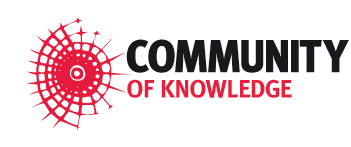Beiträge
Themengruppen
Recherche
Service
- Was ist Wissensmangement?
- Open Journal of Knowledge Management
- Artikel-Guidelines
- Newsletter
- Kalender
- Wissensmanagement-Anbieter
- Partner
- Mediadaten
Community
Sponsoren


- Barriers in intercultural knowledge sharing. Learning’s from an international plant engineering project
By Ines Kaps - Knowledge management in virtual communities
By Dirk Langenberg and Melanie Welker - How knowledge may be successfully developed across cultural boundaries
By Michael Fegerl, Wilfried Wieden - Barriers for an efficient Management of Knowledge: Experiences from a Southern African Organisation
By Norbert Herrmann - Knowledge sharing and cross-boundary collaboration in an European Union social research organisation: Is cultural diversity a key factor?
By Barbara Schmidt-Abbey
Editorial - Knowledge Management Beyond Borders
Globalization and Cultural Identity
16. Mai 2011 von Steffen DobersteinAlthough internationalization and globalization have become key topics over the past years, little attention has been given to these issues in knowledge management literature. However, we think international knowledge management will become more and more a daily task. International teams are a big challenge for knowledge managers. That’s why we chose the topic for the current Open Journal edition.
International topic – international language, the articles submitted for this Open Journal were supposed to be written in English to reach a broad international audience. However, we must admit that we did not attract the international knowledge management community’s attention as we wished for. A large number of this Open Journal’s articles were written by authors whose native tongue is German. Anyway, this Open Journal is published for an international audience. Or is international knowledge management not as specific as we thought? I was surprised finding “old friends” of knowledge management among those who submitted a paper. The described problems are very similar to the problems within a “national” organization. And if authors refer to problems with international aspects, the solution, too, is already well-known. Of course, typical problems do not disappear and why should someone reinvent the wheel, if there is a proper solution? Let us cite two of the authors. Norbert Herrmann: “As a German in southern Africa, the author implicitly uncovers ‘cultural differences’ but also uncovers barriers concerning technology, content, processes and routines, some of them interlinked to ‘cultural differences’.“ M./Fegerl/W.Wieden: “Experts from specific domains such as biology or measurement technology did not face serious problems in negotiating knowledge standards within their domain across cultural boundaries, but often had difficulty to make their expertise accessible to experts from other domains (non-experts from their point of view).”
After all, I think we do not need a new theory for handling knowledge transfer problems between different national cultures, but it is very helpful to have the experiences of practiced people (at best the predecessor). However, form your own opinion and read the chosen papers.
Most of articles are case studies. The authors are practitioners and write about their (subjective) experiences in international projects or international organizations but with profound theoretical knowledge.
Enjoy our Open Journal of (International) Knowledge Management and learn from the experiences of others!
Kommentare
Das Kommentarsystem ist zurzeit deaktiviert.
Verwandte Beiträge
Schlagworte
Dieser Beitrag ist den folgenden Schlagworten zugeordnet

